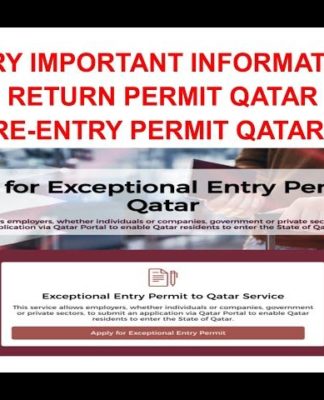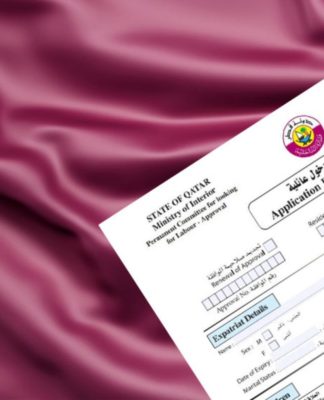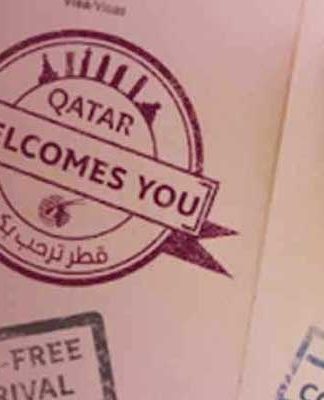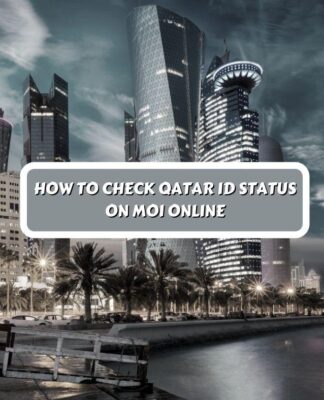
The much awaited new labour law was implemented throughout the country yesterday. “Qatar remains thoroughly committed to the establishment of a labour system, which is fair everyone; both the employer as well as the employee. The legislative changes are an ongoing effort to systematically reform the labour system across the spectrum such that workers’ rights are protected. The Government will continue to review and adapt the laws of the country in order meet the requirements of the reform”, the Government Communications Office said in a statement.
For creating awareness among lesser educated workers about the new labour law, the Ministry of Administrative Development, Labour and Social Affairs (MADLSA), in collaboration with the Ministry of Communications and Transport has installed kiosks at many labour camps with a motive to educate the workers about their rights as specified by the new labour law.
The kiosks come with pre-recorded video clips in as many as ten languages that explain to the workers how the new law protects their rights in Qatar. Workers can also learn about complaint filing from the kiosks. As many as 11 automated machines have been installed in the public services complexes across the country, which can be used by the workers to submit work related complaints without any hassles.
However, some questions still remain unclear for a lot of expats and today we will try address those concerns with this quick FAQ sheet.
How can expat workers apply for an Exit Permit under the new rules?
To get an exit permit, expat workers first must give an application to their respective employers, specifying the purpose whether the exit permit is being sought for annual leave or an emergency. Exit permits will be issued without any hassles in the majority of the cases, however, in case the request for exit permit is rejected by an employer, expats can bring the issue to the notice of the recently setup Exit Permit Grievances Committee. Any expat whose employer is not allowing him or her to leave the country for vacation or in case of an emergency must approach the committee and a decision regarding the matter will be taken within 3 days by the committee, the committee will work only from Sunday to Thursday. In case an expat is not satisfied with the decision of the Committee, he or she can appeal against the decision with the Ministry of Interior within 24 hours. Grievances will be submitted to the Committee manually via a prescribed form and a digital system will be introduced at a later stage. The Committee on its part will conduct a thorough background check of the applicant to ensure that his/her record is clear and there are no pending criminal proceedings or financial claims against him or her. Following which the Committee will contact the employer and seek the employer’s reasoning for denying the exit permit. If the employer is able to provide reasonable objections to the exit permit request such as a pending internal investigation against the concerned employee or reason to believe that the employee in question is attempting to flee the country to evade prosecution of a crime.
It is worth noting that if any such objections are raised by the employer, the burden will be on the employer to convince the relevant authorities before the 72-hour period closes that a criminal case should be opened up against the worker. If they cannot succeed in persuading the relevant authorities, the worker will be automatically granted an Exit Permit.
Who are the members of the Exit Permit Grievances Committee and how will it operate?
The Committee is chaired by Brig. Salem Al Meraikhi, Director of Legal Affairs at MOI and other members for the Committee are drawn from the Ministry of Interior, Ministry of Administrative Development Labor & Social Affairs (MADLSA) and Qatar National Human Rights Committee (QNHRC).
During the Committee’s hearings, every applicant will be given the opportunity to contest any evidence that may have been presented against them. Furthermore, the worker will also be given a chance to appeal for clemency, in certain cases.
What if the Exit Permit Grievances Committee is unable to contact the expat’s employer?
In a scenario where the Committee fails to get in touch with the employer of the applicant within the stipulated 72 hours, the Committee will grant the Exit Permit to the expat worker provided he/she has passed the background checks.
What if the applicant for Exit Permit needs to leave the country to attend to an emergency in his native country?
The Committee will strive to resolve all exit permit issues within a MAXIMUM of 72 hours, however, in reality the system has the potential to operate much faster. In case of an emergency, for instance the death of a family member or a natural disaster, the Committee will resolves such applications on a priority basis.
If an expat is prevented from receiving an Exit Permit, will their family members be able to leave the country?
Family members and dependents do not need an exit permit from the employer of a family member, they will be allowed to leave freely – unless they are found to be involved in a crime that the expat worker has been found to be involved in.
How can expats change their jobs under the new law?
One of the most important reforms of the new law is that under the new law, expats are no longer required to seek approval from their existing employers to change jobs if they have already completed the length of a fixed-contract. All they need to do is to provide a written notice to their employer before the contract expires, informing their employer of their intention to change jobs at the end of their contract. The notice period depends on the terms and conditions in the contract signed by each employee.
Similarly, expats in open-ended contracts will also be able to change jobs without their existing employer’s permission, provided they have completed a five-year service period. Expat workers in open-ended contracts must provide a written notice to their employer prior to changing the job.
Finally, any expat who wishes to change his or her job will need to get an approval from the Ministry of Administrative Development, Labour & Social Affairs (MADSLA) prior to taking up their new employment.
How are service periods calculated under the new law?
Service periods will be considered to have formally begun from the day the employee had started working for their employer, which includes all days of employment accumulated prior to the implementation of Law No. 21 of 2015.
Will expatriates be able to change jobs prior to completing their agreed service period?
Yes, a worker wishing to change job prior to completing the length of their contract can do so after duly getting the permission from their existing employer. However, if an expat worker is able to demonstrate that he or she was exploited or mistreated by the current employer, the law gives them the right to demand to transfer employment.
If an expat leaves Qatar, when can he/she return to Qatar to take up new employment?
Expats who leave Qatar and have had their employment and Residency Permit terminated, will be able to return to Qatar to take up employment immediately after being granted a new work visa. However, workers who have been found guilty of misconduct whilst working for their previous employer in Qatar will not be allowed to return.
In case the work contract of an expat is terminated, for what duration can he/she stay in Qatar for the purpose of finding a new job?
In cases such as these, expats will be allowed to stay in the country for up to three months to find work after having notified MADSLA. Upon securing a new job, such expats must approach the Ministry and present their new employment contract and get a new residence permit. Expats who are not able to find a job within this period must leave Qatar.






























